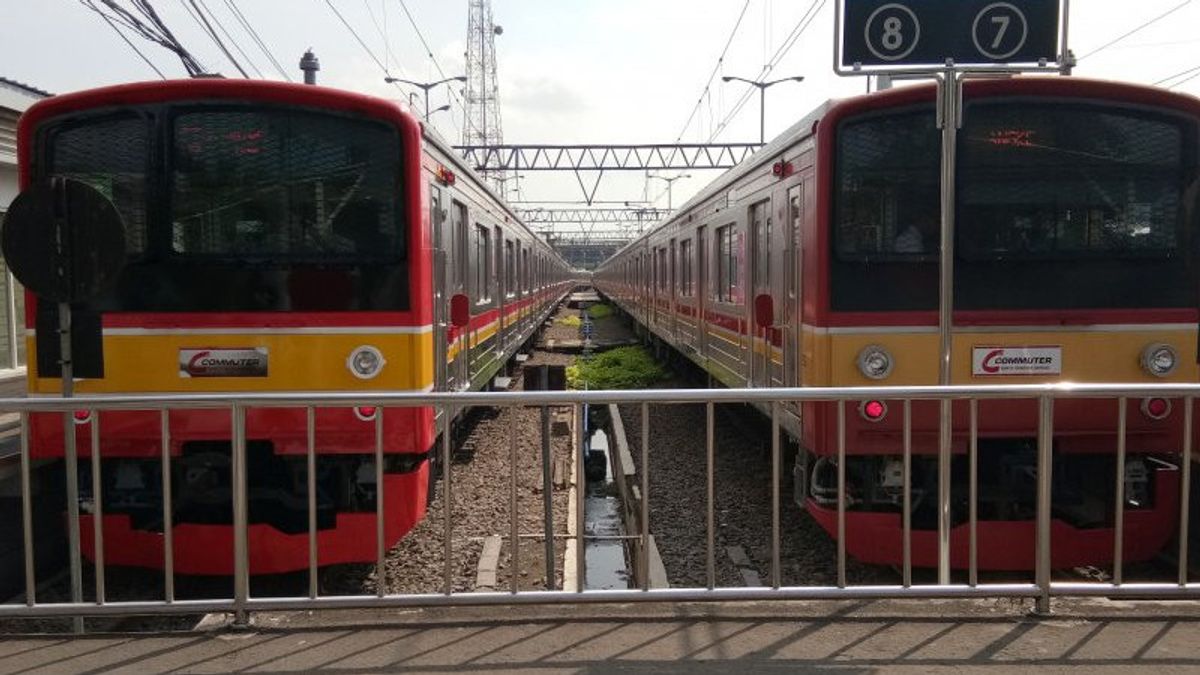JAKARTA - The government does not approve that the import option of electric rail (KRL) is not new or used as requested by PT KCI.
"Currently it is not recommended to import this," said Deputy for Investment and Mining Coordination of the Coordinating Ministry for Maritime Affairs, Septian Hario Seto, quoting Antara, Thursday, April 6.
Seto revealed that the temporary decision refers to the results of a review by the Financial and Development Supervisory Agency (BPKP).
In general, Seto explained that there were four main considerations in the review. First, the plan to import non-new KRL is considered not to support the development of the national railway industry.
This is based on the Regulation of the Minister of Transportation Number 175 of 2015 concerning the Standard for Technical Specification of the Normal Speed Train with Self-driving. In the regulation, it is stipulated that the general requirements for the procurement of normal speed train facilities by self-driving, including KRL, must meet technical specifications, one of which is prioritizing domestic products.
Second, the Ministry of Trade has also provided a response regarding the application for KRL import dispensation in a non-new state which states that this dispensation application cannot be considered because the government's focus is on increasing domestic production and import substitution through the program to Increase the Use of Domestic Products (P3DN).
"The new KRL to be imported from Japan does not meet the criteria as non-new capital goods that can be imported in accordance with Government Regulation Number 29 of 2021 and Regulation of the Minister of Trade which regulates import policies and regulations," he added.
Seto explained that in the PP and Permendag, it was stated that non-new capital goods that could be imported were non-new capital goods that could not be met from domestic sources in the context of the industrial production process for export development purposes, increasing competitiveness, business efficiency, infrastructure development, and/or re-exporting or goods/equipment in non-new conditions in the context of recovery and rebuilding as a result of natural disasters, as well as non-new goods for other purposes in accordance with statutory provisions.
"So it has been mentioned earlier that (imports) can be done if they cannot be produced domestically," he said.
Seto also revealed several technical reasons submitted by BPKP regarding the reasons for importing the used KRL proposed by PT KCI were not appropriate because there were several units of facilities that could actually be optimized.
"I don't want to go into too much detail regarding this technical reason, but from BPKP I found finding (discovery) like that," he added.
Fourth, Seto said that the current number of KRLs was 1,114 units, excluding 48 units whose assets were still suspended from operations and 36 units were temporarily converted.
This 'Overload' does occur during peak hour (peak peak) hours. But overall for occupancy in 2023 is 62.75 percent. In 2024 it is estimated that it is still 79 percent and 2025 is 83 percent. This is data from BPKP," he said.
Based on the BPKP review report, it was also stated that in 2019 the number of ready-made fleets was 1,078 units capable of serving 336.3 million passengers. Meanwhile, in 2023 with an estimated number of passengers of 273.6 million passengers, the number of existing fleets is 1,114 units.
"So in 2023 there are more fleets, but the estimated number of passengers remains far less than 2019, which has fewer fleets," he said.
Seto also revealed the findings regarding the estimated import fee of the used KRL. He said the cost that BPKP could estimate as reliable is the procurement fee from Japan Railway.
He also mentioned that the reasonable cost of handling and transportation from Japan to Indonesia, submitted by PT KCI, cannot be believed because the calculation is not based on a price survey, but only based on the import cost of KRL is not only in 2018 plus 15 percent.
"The results of the clarification with Pelindo, the available containers are only 20 feet and 40 feet, so the transportation and delivery of trains must use their own cargo ships. This of course can lead to additional costs that must be accurately estimated," said Seto.
The English, Chinese, Japanese, Arabic, and French versions are automatically generated by the AI. So there may still be inaccuracies in translating, please always see Indonesian as our main language. (system supported by DigitalSiber.id)








